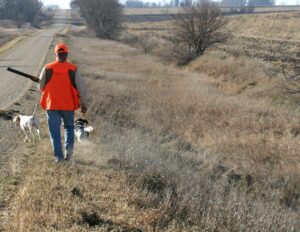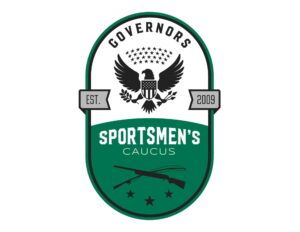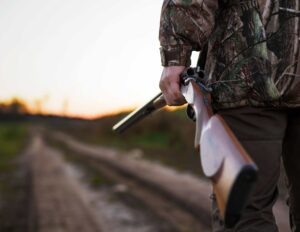Policy Corner Brief: JULY 2024

HOUSE CSC MEMBERS INTRODUCE ACE REAUTHORIZATION ACT, A SIGNIFICANT CSF PRIORITY
ARTICLE CONTACT: TAYLOR SCHMITZ
Why It Matters: The America’s Conservation Enhancement (ACE) Reauthorization Act is a comprehensive conservation package that will bolster fish and wildlife conservation across North America. Some of the nation’s most important and impactful conservation programs are contained in this legislation. The introduction of the House bill is similar to the recent Senate passed ACE Reauthorization Act. In 2020, the ACE Act was first signed into law, delivering a significant victory to the Congressional Sportsmen’s Foundation (CSF), and CSF looks forward to replicating this success in 2024.
Highlights:
- On Friday, Congressional Sportsmen’s Caucus (CSC) Members Reps. Rob Wittman, Jen Kiggans, Debbie Dingell, and Mike Thompson introduced the House companion of the America’s Conservation Enhancement Reauthorization Act, a bill strongly supported by CSF.
- The ACE Reauthorization Act will reauthorize fish, wildlife, and habitat conservation programs across the nation that are important to sportsmen and women.
Last week, the America’s Conservation Enhancement Reauthorization Act was introduced in the House of Representatives in a strong bipartisan fashion.
The House ACE Reauthorization Act will reauthorize several longstanding CSF priorities that leverage partnerships to deliver meaningful on-the-ground conservation projects. The ACE Reauthorization Act will reauthorize the North American Wetlands Conservation Act (NAWCA), the nation’s leading wetlands conservation program. NAWCA provides meaningful investments to conserving and restoring degraded wetlands across North America. Since its inception 35 years ago, NAWCA has provided over $2.1 billion in federal grants that has leveraged nearly $4.3 billion in non-federal contributions. In total, there have been over 3,300 NAWCA projects that have contributed to the conservation of nearly 32 million acres of wetlands in the United States, Mexico, and Canada.
Additionally, the ACE Reauthorization Act reauthorizes an important fisheries habitat program known as the National Fish Habitat Conservation Through Partnerships (NFHP), which is similar to NAWCA in functionality. NFHP is a state and locally driven program that leverages partners to conserve priority aquatic habitat needs, restore fish populations and enhance recreational fishing opportunities.
Furthermore, the ACE Reauthorization Act will provide a 5-year protection to prohibit the Environmental Protection Agency (EPA) from regulating the use of lead fishing tackle under the purview of the Toxic Substances Control Act (TSCA). The EPA has consistently reaffirmed state management authority of lead fishing tackle and this legislation will ensure the EPA cannot regulate lead tackle under TSCA for a period of 5 years.
CSF thanks CSC Members Reps. Wittman, Kiggans, Dingell, and Mike Thompson for introducing this important legislation, and looks forward to working with the House and Senate to deliver additional conservation investments to the President’s desk in 2024.
BUSY IN THE BLUEGRASS STATE – RECAPPING A SUCCESSFUL LEGISLATIVE SESSION IN KENTUCKY
ARTICLE CONTACT: CONNER BARKER
Why It Matters: Kentucky’s sportsmen and women were faced with several bills during the 2024 legislative session, both positive and negative, that would impact their ability to enjoy our time-honored traditions. The Congressional Sportsmen’s Foundation (CSF) had a seat at the table in Frankfort working on these bills to protect and promote Kentucky’s rich sporting heritage. CSF worked alongside the Kentucky Legislative Sportsmen’s Caucus (Caucus) and partners to defeat anti-sportsmen legislation and advance pro-sportsmen legislation in the Commonwealth.
Highlights:
- Senate Bill 3 would have (1) administratively attached the Kentucky Department of Fish and Wildlife Resources (KDFWR) to the Department of Agriculture and (2) authorized the Commissioner of Agriculture to appoint all members of the Kentucky Fish and Wildlife Commission.
- Senate Bill 60 would have allowed residents and nonresidents to obtain a hunting license or permit without taking a hunter safety education course.
- House Bill 357, sponsored by over a dozen Caucus Members, successfully prohibited payment card networks from requiring or incentivizing the use of a Merchant Category Code that distinguishes a firearm retailer from other retailers.
With threats to fish and wildlife commissions becoming common across the country, the sportsmen and women of Kentucky were faced with their own challenges regarding the KDFWR and the Kentucky Fish and Wildlife Commission. Senate Bill 3 would have (1) administratively attached the KDFWR to the Department of Agriculture and (2) authorized the Commissioner of Agriculture to appoint all members of the Kentucky Fish and Wildlife Commission. While agriculture and sporting communities share similar interests, agricultural priorities may conflict with professional, science-based fish and wildlife management. CSF submitted multiple letters of opposition, testified in committee, coordinated an action alert with conservation partners, and coordinated with the Caucus to oppose Senate Bill 3. Thanks to unified opposition from the sportsmen’s community, Senate Bill 3 was defeated, protecting wildlife management in Kentucky from the intrusion of agricultural interests.
Senate Bill 60 was a misguided bill that would have allowed residents and nonresidents to obtain a hunting license or permit without first taking a hunter safety education course. Currently, all 50 states require a hunter safety education course. Many states, Kentucky included, even require a hunter education range day where hunters can showcase their firearm safety skills and learn how to safely handle a firearm before heading afield. CSF submitted comments opposing Senate Bill 60 and worked with the Caucus to ensure that the legislation did not advance. Kentucky hunters will still be required to take a hunter safety education course, safeguarding Kentuckians’ ability to safely enjoy our time-honored traditions.
House Bill 357 passed by large margins in both chambers and soon after became law without Governor Beshear’s signature. This piece of pro-sportsmen legislation will protect the financial privacy of Kentucky’s hunters and recreational shooters by prohibiting payment card networks from requiring or incentivizing the use of a Merchant Category Code that distinguishes a firearm retailer from other retailers. With the ability to purchase firearms and ammunition at the center of our time-honored traditions, legislation to support sportsmen and women’s financial privacy when purchasing sporting purchases is critical. CSF submitted comments supporting House Bill 357 and worked alongside the Caucus and the National Shooting Sports Foundation to protect Kentucky’s hunters and recreational shooters.
In addition to achieving multiple policy wins during the 2024 session, the Caucus also hosted a successful Policy Brunch in February. Led by National Assembly of Sportsmen’s Caucuses Executive Council Member and former President, Senator Robin Webb, legislators and partners met at the statehouse to discuss issues impacting Kentucky’s sporting heritage.
CSF thanks the Kentucky Legislative Sportsmen’s Caucus and its strong in-state and national partners for their work to protect Kentucky’s sporting heritage during the 2024 Regular Session.
States Involved: KY
ARKANSAS GENERAL ASSEMBLY APPROVES BUDGET FOR GAME AND FISH COMMISSION
ARTICLE CONTACT: KENT KEENE
Why It Matters: Despite the need for additional conversations surrounding recent management decisions made by the Arkansas Game and Fish Commission, the Arkansas General Assembly returned for a brief special session which saw them approve the Commission’s budget without much debate. This move ensures that the Commission can carry out their mission as they transition into the new fiscal year. Sportsmen and women should be mindful of challenges facing state fish and wildlife agencies and how those challenges could affect our opportunities outdoors.
Highlights
- Upon returning for a special session called for by the Governor, the Arkansas General Assembly approved a budget for the Arkansas Game and Fish Commission, ensuring the agency was funded into the next fiscal year.
- Leaders of the Arkansas Legislative Sportsmen’s Caucus played a major role in addressing the challenges that prevented the budget from passing during the shortened fiscal session that took place earlier this year.
- This move ensures that both the agency, and the sportsmen and women who support and benefit from their conservation efforts, will be able to continue their work moving forward.
Upon returning to Little Rock for a special session called by Governor Sarah Huckabee Sanders, the Arkansas General Assembly successfully agreed upon and approved the budget for the Arkansas Game and Fish Commission (AGFC). As previously reported, Governor Sanders called a special session to, among a few other priorities, specifically address the AGFC budget situation that was the victim of the shortened fiscal session and challenges related to perceptions of recent management decisions made by the Commission.
Jokingly, comments among the sporting-conservation community all contained some version of, “was that really so hard?” However, this hiccup in the budget process, at least in part, demonstrates the delicate balance that state fish and wildlife agencies must strike as they advance their mission within the state. While states like Arkansas have, wisely, vested conservation and management authority within their state fish and wildlife agency via their constitution, agencies still have a duty to educate the public, including the General Assembly, on the reasoning behind management decisions in a way that is digestible to a general audience. This is critical for maintaining trust in, and support for, the agency.
At the Congressional Sportsmen’s Foundation (CSF), we consistently support the management authority of state fish and wildlife agencies given the professional training and intimate conservation knowledge possessed by their staff. However, this authority also comes with a responsibility to inform key stakeholders, including but not limited to hunters, anglers, and trappers. Historically, AGFC has done a commendable job of accomplishing this task, and the swiftness with which they, along with help from leaders of the Arkansas Legislative Sportsmen’s Caucus, were able to put these challenges to rest in the last couple weeks, demonstrates the value in maintaining these communications and educational efforts.
States Involved: AR
DSC FOUNDATION RECOGNIZES JEFF CRANE AS THE 2024 LEGACY AWARD WINNER
June 27, 2024 – Congressional Sportsmen’s Foundation President & CEO Jeff Crane was awarded the DSC Foundation’s 2024 Legacy Award at their annual Gala and Auction in Dallas on Saturday night.
The DSC Foundation Legacy Award was created to honor hunter conservationists who, through their passion and dedication, have left more than their personal mark on the past. This Award was created to recognize their many contributions to the future, and to the Legacy of Conservation Through Hunting.
“Jeff, through his career work in conservation and leadership at CSF, has ensured that our hunting heritage is both celebrated and continues,” said DSCF CEO Corey Mason. “As a conservation policy leader, Jeff clearly and frequently communicates the hunter’s role in the conservation of species and habitat.”
A lifelong outdoorsman, Jeff has led CSF since 2002. Before CSF, Jeff spent five years in the US Congress and was instrumental in establishing the Maryland legislative sportsmen’s caucus. In addition, Jeff has experience developing wildlife habitat management plans in the United States and South Africa. During his eight years in Africa, he obtained his professional hunter’s license and guided hunts for big game animals. Jeff holds a Bachelor of Arts in political science and a Master of Business Administration.
Along with CSF, Jeff served as the Chairman of the Hunting and Shooting Sports Conservation Council (HSSCC), a federal advisory council that reports to the Secretaries of Agriculture and the Interior. He is a past Chairman of the American Wildlife Conservation Partners (AWCP), the largest coalition of hunting conservation organizations. He is a Boone and Crockett member, member of DSC’s Conservation Advisory Committee, and served as Vice-Chairman of the Hunting and Wildlife Conservation Committee for the National Rifle Association (NRA). Additionally, he was a founding Board Member of the Council to Advance Hunting and the Shooting Sports.
“I want to express my gratitude and thanks for this award and this recognition. I’m truly humbled to accept this on behalf of the Congressional Sportsmen’s Foundation. DSC and CSF have been long time partners and together we are a force multiplier both for conservation and hunters across this great nation,” said CSF’s President & CEO Jeff Crane.
Previous winners include John and Chrissie Jackson, Fiona Capstick, and Mary Cabela.
GOVERNOR SARAH HUCKABEE SANDERS JOINS GOVERNORS SPORTSMEN’S CAUCUS
ARTICLE CONTACT: KENT KEENE
Why It Matters: Often the last line of defense against attempts to undermine our time-honored outdoor traditions, the Governors Sportsmen’s Caucus (GSC) is a critical component of the Congressional Sportsmen’s Foundation’s (CSF) three-pronged approach to our mission. By joining the Governors Sportsmen’s Caucus, Governor Sarah Huckabee Sanders once again demonstrates both her personal passion for the outdoors and her dedication to the Natural State’s Sportsmen and Women.
Highlights:
- In early July, Arkansas Governor Sarah Huckabee Sanders officially became the 29th active member of the Governors Sportsmen’s Caucus.
- As part of the GSC, Governor Sanders is now a member of a bipartisan network designed to further protect and advance our time-honored outdoor traditions.
- Since 2009, the Congressional Sportsmen’s Foundation has worked with GSC members as a final line of defense in support of our rights as hunters, anglers, trappers, and recreational shooting sports participants.
In early July, Arkansas Governor Sarah Huckabee Sanders became the 29th active member of the Governors Sportsmen’s Caucus (GSC). Created in 2009 as a final line of defense at the state level, the GSC is a bipartisan network of governors who share information across state and party lines in support of the Congressional Sportsmen’s Foundation’s mission to protect and advance hunting, angling, recreational shooting and trapping.
The GSC serves as the other side of CSF’s state policy platform, alongside the 50 bipartisan state legislative sportsmen’s caucuses organized through the National Assembly of Sportsmen’s Caucuses (NASC). Together, these two programs represent an unprecedented network of pro-sportsmen elected officials. While many of CSF’s policy victories are won through close coordination with NASC-member caucuses, the GSC has historically played a pivotal role in pushing good policy across the finish line while stopping bad policies at their final hurdle.
Governor Sanders follows a strong history of GSC membership in Arkansas, which most recently includes former Governor Asa Hutchinson, who served as the GSC Chair. Among the most passionate and active sportsmen and women within the GSC, CSF is excited for the opportunity to strengthen our relationship with Governor Sanders and her team as we look forward to working on behalf of the Natural State’s sportsmen and women.
States Involved: AR
GRANITE STATER’S PRIVACY PROTECTED WITH GOVERNOR’S SIGNATURE
ARTICLE CONTACT: FRED BIRD
Why It Matters: Last Friday, July 12, 2024, Governors Sportsmen’s Caucus Chair, Governor Chris Sununu signed New Hampshire House Bill 1186 (HB 1186) – An Act Relative to Firearm Purchaser’s Privacy into law, protecting the privacy of Granite Staters and individuals shopping in New Hampshire.
Highlights
- On July 13, 2024, Governors Sportsmen’s Caucus Chair Governor Chris Sununu signed HB 1186 into law, protecting the privacy of Granite State residents as well as out of state consumers.
- HB 1186 prohibits the assigning of a specific merchant code to the sale of firearms, ammunition, or firearm accessories, and provides for penalties and an enforcement mechanism.
- The Firearm Purchaser’s Privacy Act prohibits a person or entity involved in facilitating or processing an electronic payment transaction and licensed to do business in this state, including a payment card issuer or payment card network, from assigning a merchant category code.
- Following the Governor’s signature, a firearms retailer may not provide a firearms code to a payment card issuer or payment card network and may only use or be assigned a merchant category code for general merchandise retailers or sporting goods retailers.
- The Congressional Sportsmen’s Foundation’s (CSF) Northeastern States Manager, Fred Bird submitted testimony in support of HB 1186 early in the session (January 31, 2024) and supported the New Hampshire Legislative Sportsmen’s Caucus’ leadership on the issue as the bill worked through the legislative process in the months that followed. We thank the Governor, the Caucus, and the legislature at large for recognizing the need for these important protections.
Last Friday, July 12, 2024, Governors Sportsmen’s Caucus Chair, Governor Chris Sununu signed New Hampshire HB 1186 – An Act Relative to Firearm Purchaser’s Privacy into law, protecting the privacy of Granite Staters and individuals shopping in New Hampshire. Introduced on January 3, 2024, HB 1186 protects Granite Staters from being tracked or halted by financial institutions when purchasing firearms and ammunition. Protecting the personal information of sportsmen and women is paramount to the continued success of the time-honored outdoor traditions that have long been enjoyed by Granite Staters. By prohibiting financial institutions from distinguishing firearm retailers from other general or sporting-goods retailers, as well as prohibiting the existence of a list or registry of privately owned firearms in the State, HB 1186 ensures that hunters and recreational shooters may continue to lawfully purchase the sporting equipment needed to partake in the outdoor traditions that have stood as societal pillars in New Hampshire for generations, while simultaneously providing the funds necessary for the Fish and Game Department to carry out its mission.
Enacted in 1937, the Pittman-Robertson Act redirected previously existing manufacturer-level excise taxes on firearms and ammunition to a dedicated fund to be used specifically for wildlife conservation purposes. These critical conservation dollars fund a variety of efforts including enhanced fish and wildlife habitat and populations, recreational access to public and private lands, shooting ranges and boat access facilities, wetlands protection and its associated water filtration and flood retention functions, and improved soil and water conservation – all which benefit the public at large, not just sportsmen and women.
Without this important consumer protection, hunters and recreational shooters in New Hampshire could be subject to discrimination by financial or anti-sportsmen organizations, which would likely deter participation and decrease critical conservation funding. With the Governor’s signature, HB 1186 is now law.
The Congressional Sportsmen’s Foundation would like to thank Governor Sununu and the New Hampshire Legislative Sportsmen’s Caucus for their leadership and ensuring the Granite State’s sporting community’s privacy is protected as well as protecting the community from discriminatory practices for lawfully purchasing products to their outdoor pursuits.
States Involved: NH
CSF-SUPPORTED LAND CONSERVATION LEGISLATION SIGNED INTO LAW
ARTICLE CONTACT: CONNER BARKER
Why It Matters: In states like North Carolina where land is primarily privately owned and the population is increasing rapidly, proactive efforts such as offering financial incentives to private landowners to conserve property are essential to ensuring the future success of wildlife management efforts. These incentives, such as offering state income tax credits to landowners who donate property for conservation purposes, benefit fish and wildlife while also maintaining critical hunting and angling access.
Highlights:
- Last year, North Carolina Legislative Sportsmen’s Caucus (Caucus) Member Representative Stephen Ross, along with former Caucus Co-Chair Representative John Bell, current Caucus Co-Chair Representative Michael Wray, and Caucus Member Representative Jimmy Dixon, introduced legislation to support land conservation efforts in the state.
- Originally written as a standalone bill, the provisions from House Bill 290, the Protect NC’s Military and Working Lands Act, were included in Senate Bill 355, the North Carolina Farm Act of 2024 (Farm Act). Section 15 of the Farm Act offers state income tax credits to landowners who donate interests in real property for conservation purposes.
- On May 23, the Congressional Sportsmen’s Foundation (CSF) submitted testimony in support of Section 15 to the House Committee on Agriculture.
- The Farm Act was signed into law by Governors Sportsmen’s Caucus Member Governor Roy Cooper on July 3.
As farms and forestlands are purchased, they are often subdivided and developed which leads to the loss of hunting and fishing access and fragmentation of fish and wildlife habitat. Incentives like state level tax credits for conservation easements, reduced fee title, and/or donated land for conservation purposes are all tools that states can use to conserve fish and wildlife habitat.
Section 15 in the Farm Act allows for an up to 25 percent state tax credit of the fair market value of the donated property of interest for the following purposes: farmland preservation, fish and wildlife conservation, floodplain protection, historic landscape conservation, public trail access, and buffers for military installations. The tax credit provision is capped at $5 million per year and will be effective for taxable years beginning on or after January 1, 2025, for donations made on or after January 1, 2025, and expires for taxable years beginning on or after January 1, 2027, for donations made on or after January 1, 2027.
With the passage of the Farm Act, private landowners in the Tar Heel State will be able to receive tax credits for their conservation efforts for the first time in 11 years. Sunsetting in 2013, a previous version of this state income tax program led to a 20 percent increase in overall land donations and is credited with protecting 250,000 acres in North Carolina.
CSF thanks the North Carolina Legislative Sportsmen’s Caucus and our partners, such as The Nature Conservancy in North Carolina, for their support to conserve North Carolina’s hunting and fishing traditions for future generations.
States Involved: NC
SHARE ON
You may also like
The role corn plays for gamebirds and economies ac...
Sportsmen’s conservation policy issues from publ...
Sportsmen’s conservation policy issues from publ...
































